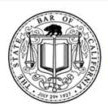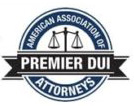Can DUI Charges Be Defended Against?
Many people who are arrested and charged for DUI in California feel like they are being falsely accused, or that they were not actually driving while intoxicated. This raises the important question of what you should do if you are being charged with a DUI, especially if you have doubts that you are actually guilty. Can these charges be effectively defended against? The simply answer to this question is “YES.” Below I will describe some of the ways a DUI charge can be defended.
Three Primary Ways to Defend Against DUI Charges
There are Three primary ways to defend against DUI charges. These are:
1. Disprove an Element of the Offense or Establish Reasonable Doubt as to one of the elements.
2. Have the Evidence Suppressed
3. Present a Legal Defense
#1 Disproving an Element of the Offense or Establishing Reasonable Doubt
One of the primary ways a DUI is defended is by challenging the district attorney’s effort to make his case against you. When you are charged with a crime, you are presumed innocent until proven guilty. The government (represented by the district attorney) carries the burden of establishing that you were guilty of committing the crime they are accusing you of, which in this case is a DUI. Thus the District Attorney carries the burden of effectively making the case that you violated vehicle code section 23152(a), 23152(b), 23153(a), or 23153(b)
The crime of driving under the influence (DUI)can be broken down into basic elements, each of which must be proven by the District attorney if they are going to successfully convict you of a DUI at trial. Essentially the District Attorney must establish that you were:
1. Driving a Motor Vehicle
2. While Simultaneously impaired by Alcohol or Drugs or both.
To establish impairment, the District Attorney must prove that as a result of your consumption of alcohol or drugs, you mental or physical abilities were limited such that you no longer had the ability to drive a vehicle with the caution characteristic of a sober person of ordinary prudence under the same circumstances.
Given this, there a few ways to defend against a DUI charge including:
1. Establish that you were not driving, or establish reasonable doubt as to whether you were driving.
2. Establish that you were not under the influence, or impaired, or establish reasonable doubt as to whether you are impaired.
3. Establish that impairment and driving did not coincide, or raise doubt that you were simultaneously driving while impaired.
No Driving Established
The type of defense listed under number one above is what is commonly referred to by DUI Attorneys as the “No Drive Defense.” I will go into more detail elsewhere on this website on “No Drive Defense” cases, but suffice it to say that these types of cases are fairly common. Anytime a DUI investigation begins with a situation in which the police officer did not see you driving, or actually pull you over, then the facts should be analyzed to determine whether or not the district attorney can prove that you were ever driving the vehicle. If the district attorney cannot prove that you were driving the vehicle then they cannot make their case against you for a DUI conviction.
No Impairment Established
Number 2 above describes cases in which your defense is that you were not actually under the influence. A person is considered “under the influence” when as a result of drinking alcohol or taking some type of drug, or a combination of the two, his or her physical or mental abilities are impaired to such a degree that he or she no longer has the ability to drive the vehicle with caution characteristic of a sober person of ordinary prudence under similar circumstances.
In order to make a case that you were not under the influence you normally will need an expert to come to your trial to testify as to the physiological impact that might be expected given the results of your chemical test. So for example an expert may come and testify that the amount of marijuana or alcohol, or whatever, that was found in your blood was too little to render you legally impaired, or unable to drive wight he caution of a sober person under the same circumstances.
Driving and Impairment Did Not Occur Simultaneously
In some circumstances the district attorney may be able to establish driving, and he or she may also be able to establish impairment, but the district attorney may not be able to establish that these happened at the same time. Two common examples include the following: 1. In a case where the police find someone sleeping in their car and the person is intoxicated, even if the district attorney can prove that they drove at some point, and prove that they are intoxicated, the district attorney may have a hard time demonstrating that these events coincided. This is especially true if no time of driving can be established. 2. There may be situations in which a persons BAC can be shown to have been rising at such rate that when the time of drinking, and driving, and the rate of the metabolization of the alcohol was such that an expert could show that it is not reasonable to believe that impairment existed at the time of driving, but only after the fact.
However, the law assists District Attorneys in making their case that you were impaired with Vehicle Code Section 23152(b) which triggers a legal inference for the jury that if you were given a chemical test within 3 hours of driving and the result of that indicates that your BAC was 0.08 or higher then the jury can (not required, but legally justified, if they so chose to draw the conclusion) legally infer that you were under the influence at the time you were driving.
#2 Suppression of Evidence
An additional way that DUI cases can be defended against are through suppression motions. The United States Constitution provides certain protections under the 4th and 5th Amendments that apply to government (law enforcement) handling of criminal cases. The remedy for a violation of one’s 4th or 5th amendment rights is a suppression of the evidence that law enforcement obtained as a result of that violation.
Let me give an example. The 4th Amendment of the Constitution protects individuals against unreasonable searches and seizures. Recently, in a case called Missouri V. Mcneely the United States Supreme Court ruled that forced blood draws pursuant to a DUI investigation require law enforcement to obtain a warrant for the seizure of the blood. If you refuse a chemical test, and law enforcement forces a blood draw, without a warrant, in violation of your constitutional rights, then your attorney can file a motion to have the evidence (the blood and the test results) suppressed. In the event that these key pieces of evidence are not available to district attorney in a DUI prosecution (because the evidence was suppressed), the district attorney’s case against your falls apart and a conviction becomes impossible.
There are many different ways that the police can violate your constitutional rights during a DUI investigation, and therefore there are many different scenarios that could warrant a suppression motion. I will list a few of these on another page dedicated solely to this topic, but in general if you believe your rights were violated during your DUI arrest, you should discuss this with a DUI attorney.
#3. Legal Defenses
Duress or Necessity
I will not go into too much detail here as to the legal defenses that might exist in a DUI case as they are actually relatively rare in their application. But legal defenses such as duress or necessity would be valid defenses to a DUI. For example If you were robbed and then forced at gun point to drive, while you were intoxicated, the defense of duress would apply. Alternatively if you chose to drive a vehicle while you were already intoxicated for some greater purpose, such as to save someone’e life by driving them to a hospital, then the defense of necessity would apply.
Double Jeopardy
Also, double jeopardy principles would be a valid defense if someone was previously prosecuted for a DUI and was later charged again based on the same occurrence.
Mistake of Fact
An act committed by reason of a mistake of fact which disproves criminal inert is not a crime. Thus if a person is not guilty of a crime if he or she commits an act under and honest and reasonable belief in the existence of certain facts, which if true would make the act lawful. Thus it is possible for someone to have a reasonable, but mistaken, belief that their BAC was well below 0.08 and and for this to act a valid legal defense.
Conclusion: There are Many Ways to Defend Against DUI Charges. Call for a Free Case Evaluation
If you are being charged with a DUI you need representation. Call our office at (805) 621-7181. We defend individuals charged with DUI in Santa Barbara and San Luis Obispo Counties.








